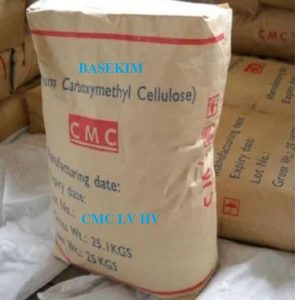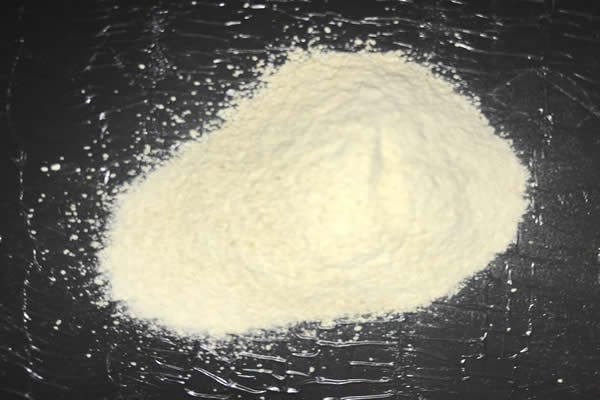
Carboxymethyl Cellulose (CMC) is a water-soluble polymer derived from natural cellulose, which is found in the cell walls of plants.
Because of its unique chemical structure, CMC functions as a thickener, stabilizer, and binding agent across a wide range of industries.
Therefore, it has become one of the most versatile cellulose derivatives used today.
Table of Contents
ToggleCMC dissolves easily in water, forming clear solutions that can modify the viscosity and texture of liquids.
Moreover, it is stable across different temperatures, pH levels, and ionic strengths, making it a preferred choice for manufacturers worldwide.
Its long shelf life, cost-effectiveness, and reliable performance further enhance its popularity.
Basekim produces and supplies high-quality CMC to global markets, delivering consistent products for food, pharmaceutical, cosmetic, and industrial applications.
Due to its multifunctional properties, CMC is used across several industries.
In addition, it plays a crucial role in both consumer goods and industrial processes.
1. Food Industry
CMC acts as a thickener, stabilizer, and texture enhancer in many food products.
Consequently, it improves consistency and shelf life in:
Ice cream and frozen desserts
Salad dressings and sauces
Baked goods and fillings
Beverages and dairy products
Its ability to withstand temperature variations makes it ideal for both hot and cold applications.
2. Pharmaceuticals and Cosmetics
The pharmaceutical and cosmetic industries rely on CMC for its stabilizing and emulsifying abilities.
Moreover, it enhances product performance in:
Tablets and capsules as a binding agent
Liquid medicines as a viscosity modifier
Toothpaste and mouthwash for stability and texture
Skincare creams and lotions for smoothness and consistency
As a result, manufacturers achieve better product quality and consumer satisfaction.
3. Personal Care Products
CMC is widely used in shampoos, body washes, and hand soaps.
Furthermore, it provides a smooth, luxurious feel while maintaining stable formulations even under varying storage conditions.
CMC plays a vital role in the oil and gas industry, especially in drilling operations.
Because of its high viscosifying power, it is added to drilling muds to enhance performance and efficiency.
Viscosity control: Increases the thickness of drilling mud to improve cuttings transport.
Fluid loss prevention: Minimizes water loss from the drilling fluid into surrounding rock formations.
Lubrication: Reduces friction between the drill bit and the wellbore.
Salt tolerance: Performs effectively in saltwater-based muds with proper formulation.
Therefore, CMC ensures stable and efficient drilling operations, even in challenging environments.
CMC with high molecular weight performs well in freshwater drilling systems.
However, when used in saltwater systems, standard CMC may face reduced solubility and effectiveness.
This can lead to cloudy, partially dissolved solutions with lower viscosity.
To address this issue, Basekim offers salt-tolerant CMC, specially formulated for high-performance drilling fluids.
As a result, oilfield operators benefit from reliable viscosity and consistent water loss control.
Water loss, also called filtration loss, occurs when drilling fluid loses water to the surrounding formation.
Consequently, this can destabilize the wellbore and increase operational risks.
CMC helps reduce water loss by forming a thin, protective filter cake on the wellbore wall.
Moreover, this protective layer minimizes fluid invasion, ensuring drilling stability and efficiency.
In summary, using the right grade of CMC improves drilling performance, reduces downtime, and enhances overall well productivity.
Although CMC is derived from natural cellulose, its modified form is not fully biodegradable.
Therefore, improper disposal can contribute to environmental pollution, especially in water systems.
To minimize impact:
Follow local waste management regulations.
Use environmentally friendly drilling fluid formulations.
Implement wastewater treatment systems in industrial facilities.
Furthermore, Basekim promotes sustainable practices and provides technical support for safe handling and disposal.
Choosing CMC provides several benefits for manufacturers and industrial operators.
In addition, it offers performance advantages that make it superior to many other additives.
Excellent thickening and stabilizing power.
Effective in both fresh and saltwater systems.
Cost-efficient and long shelf life.
Enhances product texture and performance.
Reduces water loss in drilling fluids.
Compatible with a wide range of other chemicals.
Consequently, industries save costs while improving production quality.
Basekim offers flexible packaging to suit different industries and shipping requirements.
Moreover, all packaging is designed to maintain product integrity during storage and transportation.
| Packing Type | Weight | Use Case |
|---|---|---|
| 25 kg Multi-layer Bags | Standard packing | Food, cosmetic, and pharma |
| 50 kg Bags | Bulk industrial | Drilling and oilfield use |
| Jumbo Bags | Large volume | Export and large-scale needs |
Additionally, Basekim provides private labeling and customized packaging for clients in different regions.
Although carboxymethyl cellulose is generally safe, it is important to handle it correctly to prevent contamination and ensure worker safety.
Store in a cool, dry, and ventilated area.
Avoid moisture exposure to prevent clumping.
Use clean, sealed containers for storage.
Follow proper hygiene when handling food-grade CMC.
Wear protective gear during industrial mixing processes.
Furthermore, always comply with local safety and handling regulations.
Basekim is a trusted global supplier of carboxymethyl cellulose, serving clients across oil and gas, food, pharmaceutical, and cosmetic industries.
Because of our commitment to quality, we ensure every batch meets international standards.
Our advantages include:
High-purity, industry-specific CMC grades.
Competitive pricing and flexible shipping options.
Technical support for application guidance.
Reliable supply chain for consistent deliveries.
Custom packaging and private labeling options.
Consequently, businesses worldwide rely on Basekim for their CMC requirements.
1. What industries use CMC?
CMC is used in food production, cosmetics, pharmaceuticals, drilling fluids, textiles, and personal care products.
2. Why is CMC important for drilling?
CMC improves drilling fluid viscosity, reduces water loss, and stabilizes the wellbore, ensuring smoother drilling operations.
3. Is CMC safe for food products?
Yes, food-grade CMC is approved for use as a thickener and stabilizer in ice cream, sauces, and baked goods.
4. How should CMC be stored?
Store in sealed, moisture-proof containers in a cool, dry area to maintain quality and performance.
5. Does Basekim offer bulk carboxymethyl cellulose supply?
Yes. Basekim provides 25 kg bags, 50 kg bags, and jumbo bags for large-scale industrial and export orders.
CMC (Carboxymethyl Cellulose) is a versatile, water-soluble polymer with critical roles in food, cosmetics, pharmaceuticals, and drilling industries.
Its thickening, stabilizing, and water-loss prevention properties make it essential for manufacturers and oilfield operations.
Basekim supplies premium CMC worldwide, offering high-quality grades, secure packaging, and reliable global shipping.
By choosing Basekim, you gain a trusted partner who understands your industry’s needs and delivers consistent results.
